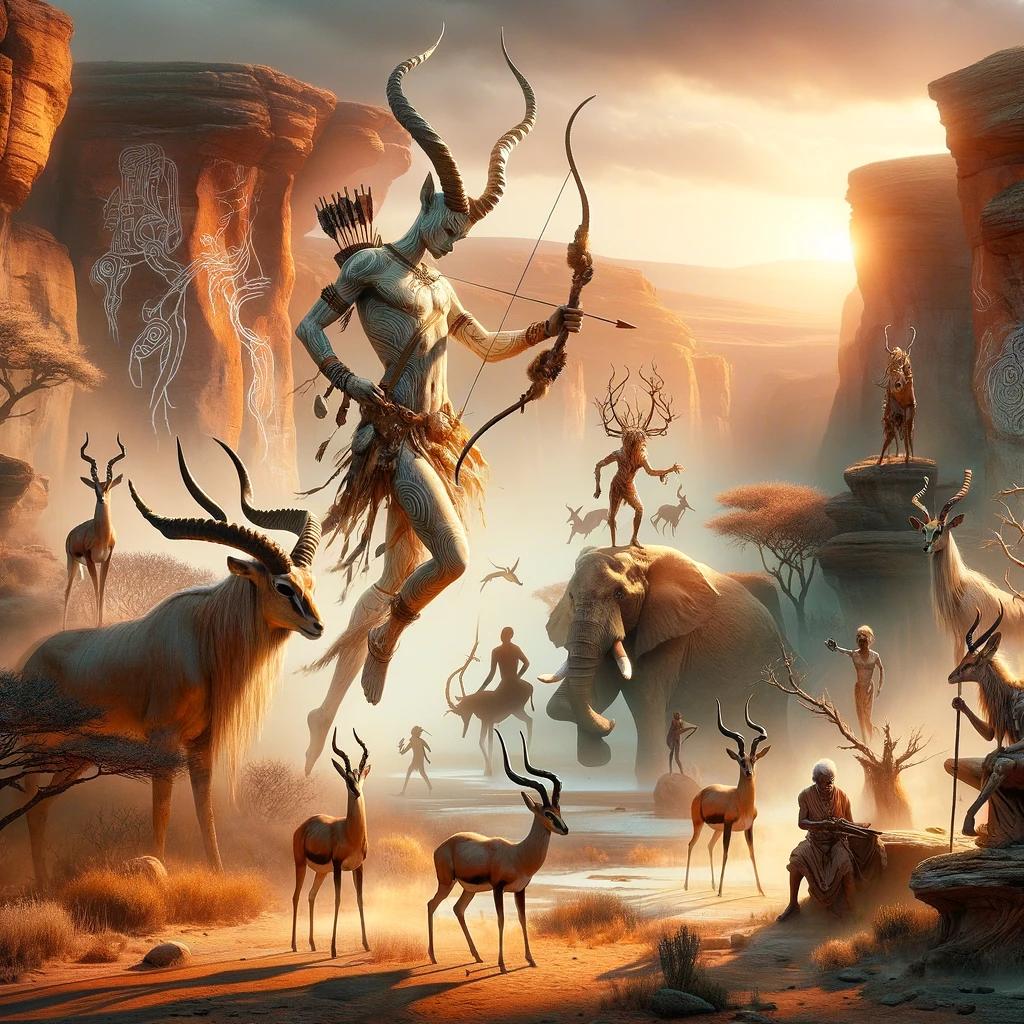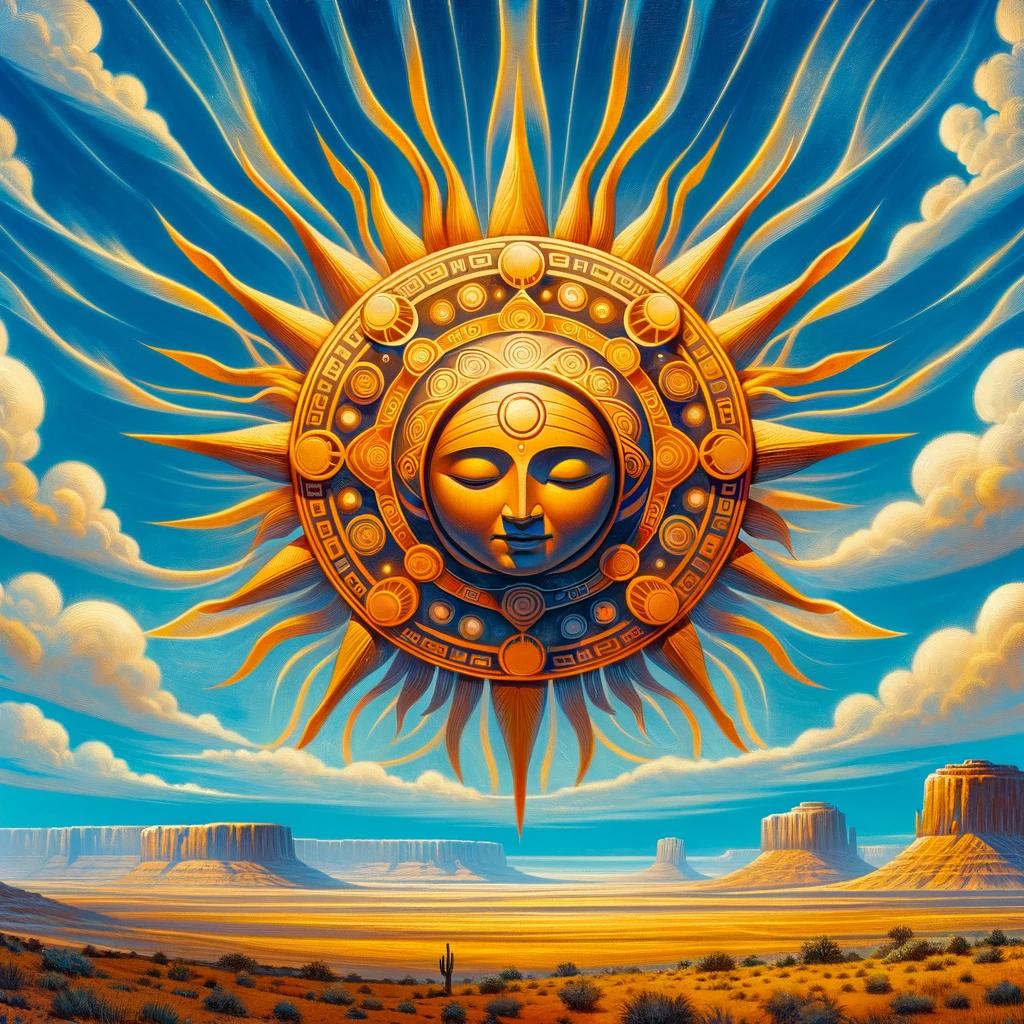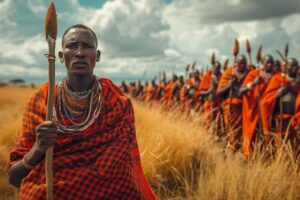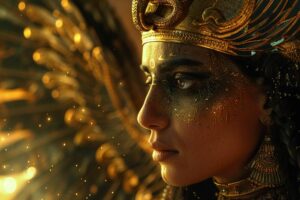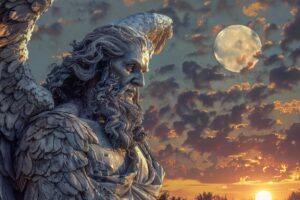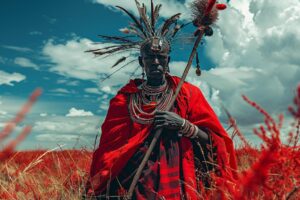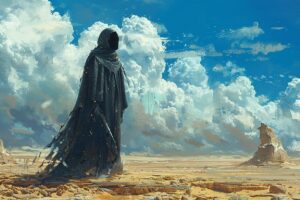Exploring Igbo Mythology Gods and Goddesses: Divine Tales from Nigeria’s Rich Culture
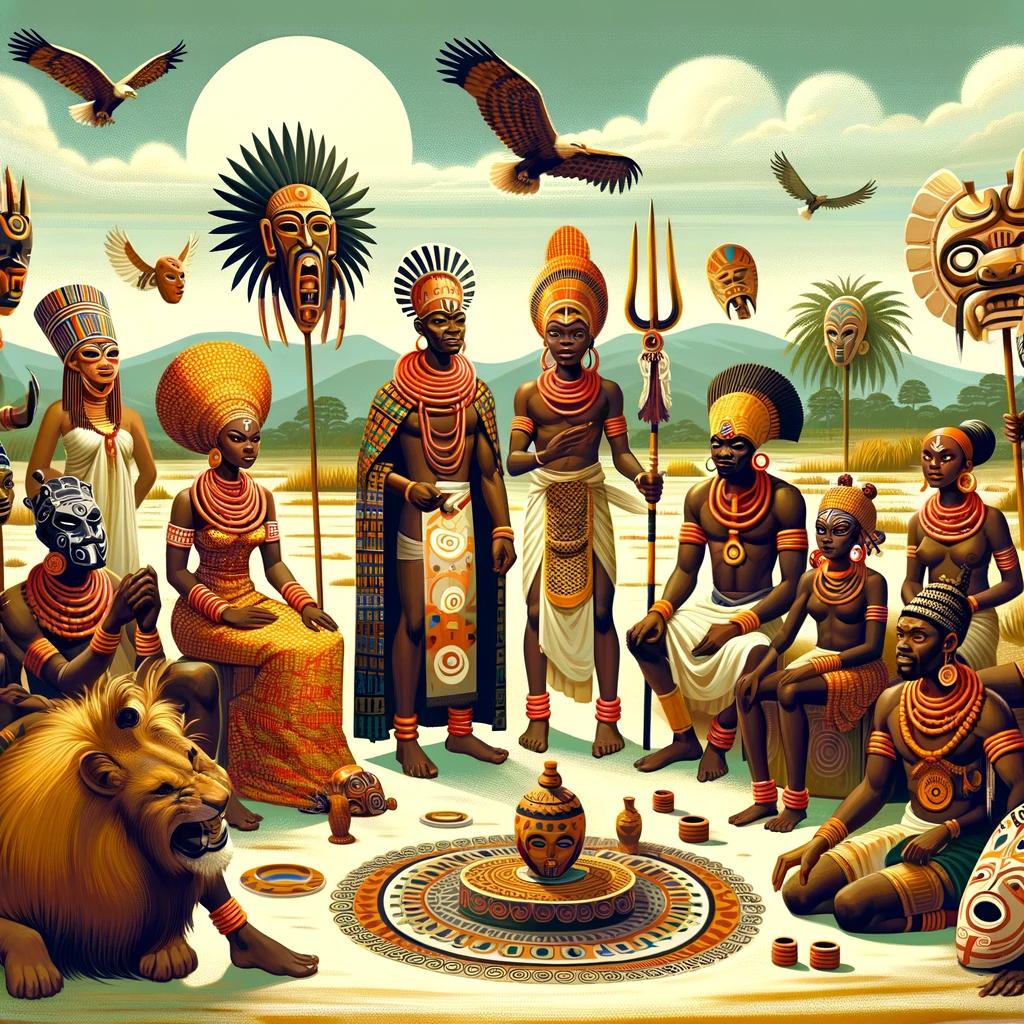
Igbo mythology gods and goddesses hold significant roles in the rich cultural tapestry of Nigeria. From the supreme deity Chukwu to deities like Ala, Amadioha, Ikenga, and Anyanwu, these divine beings shape Igbo society and daily life.
This article explores their origins, rituals, festivals, and moral lessons found in epic tales, as well as their influence on art, literature, and modern contexts. Join us as we delve into the captivating world of Igbo mythology and the enduring presence of its gods and goddesses.
The Origins of Igbo Mythology
The rich mythology of the Igbo people holds captivating tales of creation and the origins of their deities. Two key aspects form the basis of Igbo mythology: the creation story centered around the supreme god Chukwu and the significant role of gods and goddesses in shaping Igbo society.
The Creation Story: Chukwu and the Cosmic Order
According to Igbo mythology, Chukwu is the supreme god who brought the universe into existence. He is regarded as the creator and sustainer of the cosmos and all lesser deities. The creation story describes how Chukwu established the order and harmony of the world.
It recounts the divine act of Chukwu shaping the landscape, placing celestial bodies, and infusing life into the elements.
Chukwu’s mastery of the cosmic order ensures that everything works harmoniously, maintaining balance and providing for the needs of humankind.
The creation story illustrates the Igbo belief in the divine plan and how it influences the natural and spiritual realms.
The Role of Gods and Goddesses in Igbo Mythology
In Igbo mythology, gods and goddesses play integral roles in the lives of the people. Each deity represents unique aspects of the human experience and has specific powers and responsibilities.
The gods and goddesses act as intermediaries between Chukwu and humanity, serving as conduits for communication, blessings, and protection.
They are believed to guide and influence various aspects of life, such as fertility, weather, war, and creativity.
Moreover, the gods and goddesses in Igbo mythology serve as moral examples for the community, embodying values and principles that promote harmony, justice, and ethical behavior.
Understanding the role of gods and goddesses in Igbo mythology is essential for comprehending the intricate tapestry of beliefs, rituals, and social dynamics within this distinct cultural tradition.
Key Gods and Goddesses in Igbo Mythology
In Igbo mythology, a rich pantheon of gods and goddesses holds great significance in the culture and worldview of the Igbo people.
Each deity carries unique attributes and powers, influencing different aspects of human life and the natural world.
Chukwu: The Supreme God
Chukwu, known as the supreme god, holds a central role in Igbo mythology. Revered as the creator of the cosmos and the lesser deities, Chukwu is associated with the sun, which is considered the “eye” of God on Earth.
The Igbo people believe that Chukwu governs divine justice and oversees the balance of the universe.
Ala: The Sacred Earth Goddess
Ala, the earth goddess, embodies the fertility and abundance of the land. She is revered as the mother deity who sustains life and ensures the well-being of humanity. The Igbo people offer prayers and sacrifices to Ala to seek her blessings for agricultural prosperity and harmony with nature.
Amadioha: The Thunder and Lightning God
Amadioha is the powerful deity associated with thunder and lightning. He is believed to control the forces of nature, particularly storms, and is often invoked for protection against enemies and justice.
The Igbo people hold festivals in honor of Amadioha, displaying their reverence and seeking his assistance in times of need.
Ikenga: The Deity of Personal Power
Ikenga, the deity of personal power, represents individual achievements, success, and empowerment. He is associated with entrepreneurship, war, and strategic thinking. The Igbo people often have personal Ikenga shrines at home, where prayers and offerings are made to seek Ikenga’s guidance and blessings in endeavors.
Anyanwu: The Divine Sun Goddess
Anyanwu, the divine sun goddess, symbolizes warmth, light, and vitality. She is regarded as the source of life and energy, and her presence is felt in the daily lives of the Igbo people.
Anyanwu is often praised and revered for her nurturing and healing qualities, as well as her role in agricultural productivity.
These key gods and goddesses not only play significant roles in Igbo mythology but also shape the cultural beliefs, practices, and traditions of the Igbo people.
Their stories and influence continue to resonate in the hearts and minds of the community, forging a deep connection between spirituality and everyday life.
The Roles of Gods and Goddesses in Igbo Society
Gods and Goddesses in Igbo Daily Life
In Igbo society, gods and goddesses hold a significant place in the daily lives of the people.
They are believed to influence various aspects of life, providing guidance, protection, and blessings. The Igbo people attribute the harmony and success in their daily endeavors to the favor of these divine beings.
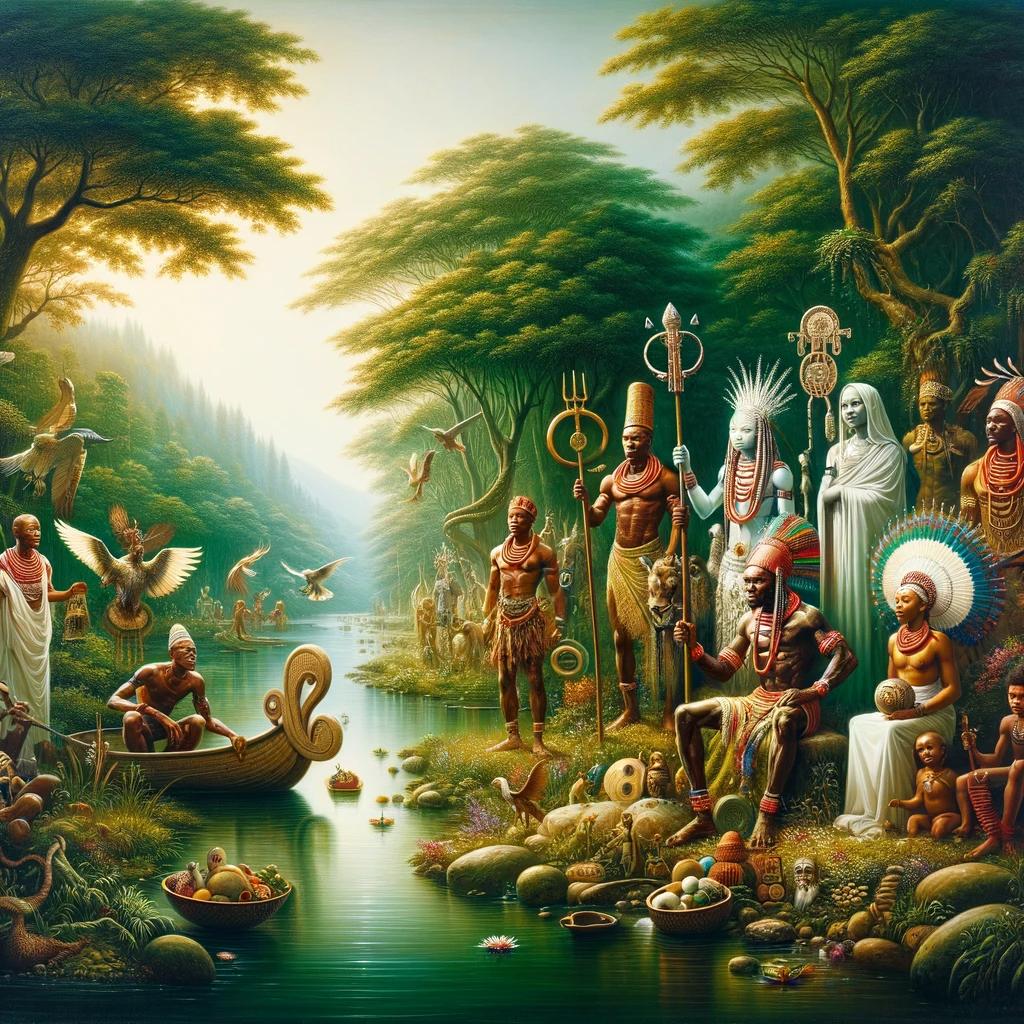
Whether it is seeking prosperity in business, fertility in relationships, or good health, the presence of gods and goddesses is deeply ingrained in the fabric of Igbo life.
Rituals and Offerings to Honor the Deities
To pay homage to the gods and goddesses, the Igbo people perform various rituals and offer sacrifices.
These rituals are conducted by spiritual leaders or priests who act as intermediaries between the human and divine realms. Offerings such as food, drinks, and symbolic objects are presented to the deities as a sign of gratitude and reverence.
These rituals serve as a way to establish and maintain a relationship with the gods and seek their blessings and protection.
Festivals and Celebrations in Worship of the Divine
Igbo society is rich in vibrant festivals and celebrations dedicated to honoring the gods and goddesses. These events provide a platform for communal gatherings, cultural displays, and spiritual reverence. During these festivals, the community comes together to offer prayers, perform traditional dances, and participate in rituals that showcase their devotion to the divine.
These celebrations not only foster a sense of unity but also serve as a means to pass down cultural traditions, ensuring the continuity of worship and reverence for the gods and goddesses.
In conclusion, the roles of gods and goddesses in Igbo society are deeply rooted in daily life, rituals, and festivities. Their presence and influence shape the cultural and spiritual landscape of the Igbo people, providing guidance, protection, and a source of communal celebration.
Through these practices, the people maintain a strong connection with their divine counterparts, reinforcing their beliefs, values, and traditions in the modern context of 2023.
Myths and Legends in Igbo Mythology
Myths and legends are integral parts of Igbo mythology, providing fascinating narratives that delve into the realms of gods and heroes.
These stories are passed down through generations, captivating listeners with their rich symbolism and profound teachings. Let’s explore two key aspects of Igbo mythology: the epic tales of gods and heroes and the moral lessons found within these captivating stories.
Epic Tales of Gods and Heroes
In Igbo mythology, epic tales recount the awe-inspiring adventures of gods and heroes. These stories transport listeners to a world where divine beings interact with mortals, embarking on extraordinary quests and facing mythical creatures.
Legends such as the tale of Ekwensu and the struggle for cosmic balance or the story of Ogbuide, the warrior deity, inspire courage and depict the eternal battle between good and evil.
Through these captivating narratives, Igbo mythology weaves a tapestry of heroes, gods, and their remarkable journeys.
Moral Lessons in Igbo Mythology Stories
Beyond their enthralling narratives, the myths and legends of Igbo mythology carry profound moral lessons. These stories offer insights into human behavior, emphasizing virtues, and warning against vices. Through the tale of the cunning Tortoise, Igbo mythology imparts wisdom about the consequences of greed and deceit.
The story of the virtuous Princess Adaobi highlights the importance of loyalty and compassion. These stories serve as moral guideposts, encouraging individuals to embrace integrity, generosity, and respect for tradition.
In conclusion, the myths and legends of Igbo mythology encompass captivating epic tales of gods and heroes, as well as insightful moral lessons.
These narratives provide a glimpse into the world of divine beings and offer valuable guidance for personal and societal development. By exploring these mythological stories, we can gain a deeper understanding of the cultural and spiritual beliefs of the Igbo people in Nigeria.
Influence of Igbo Mythology on Art and Literature
Traditional Art Depicting Gods and Goddesses
The rich mythology of the Igbo culture has long been a source of inspiration for traditional art forms. From intricate wood carvings to vibrant paintings, Igbo artists skillfully capture the essence of gods and goddesses in their creations.
These artworks often depict the divine figures adorned in symbolic attire, holding symbolic objects, and surrounded by elements that represent their domains of influence.
Traditional Igbo art not only serves as a visual representation of the deities but also conveys deeper meanings and spiritual messages.
The use of colors, patterns, and styles reflect the sacredness of the gods and their significance in Igbo society. Each piece of artwork becomes a medium through which the divine is revered, honored, and celebrated.
Igbo Mythology in Contemporary Literature
The influence of Igbo mythology extends beyond traditional art and finds its place in contemporary literature. Authors and storytellers have embraced the rich tapestry of Igbo myths and legends, weaving them into captivating narratives that resonate with readers across generations.
From novels to poetry, Igbo mythology serves as a wellspring of inspiration, offering authors a vast array of characters, settings, and themes to explore. Through their works, writers delve into the complexities of human existence, morality, and the interplay between the mortal and divine realms.
Contemporary Igbo literature often incorporates elements of mythology, bringing these ancient stories to life in modern contexts. With their unique storytelling techniques, authors create a bridge between the past and the present, transporting readers into a world where gods and mortals coexist and the boundaries between reality and myth blur.
Through literature, Igbo mythology continues to inspire and captivate audiences, keeping the ancient traditions alive while embracing the evolution of storytelling in the modern world.
Igbo Mythology in the Modern Context
Igbo mythology continues to have relevance and influence in the modern world.
In this section, we will explore how efforts are being made to preserve and revive the rich traditions associated with Igbo deities, as well as their portrayal in media, entertainment, and social media.
Preservation and Revival Efforts
With the rise of globalization and the spread of Christianity, many traditional practices and beliefs have faced challenges in the Igbo society. However, there has been a growing interest in preserving and reviving the ancient rituals and customs associated with the Igbo gods and goddesses.
Cultural organizations, religious institutions, and scholars are working together to document and study the mythology, ensuring its transmission to future generations. Efforts include the revival of festivals, ceremonies, and traditional practices that honor the Igbo deities.
These initiatives play a crucial role in maintaining the cultural identity and spiritual connections of the Igbo people.
Igbo Mythology in the Media and Entertainment
Contemporary media and entertainment platforms have embraced the allure of Igbo mythology, incorporating it into various forms of artistic expression. Television shows, films, and literature often draw inspiration from the captivating tales of Igbo gods and goddesses.
Through these mediums, audiences gain exposure to the mythical world of Igbo deities and their significance in the traditional culture. This integration helps to maintain awareness and appreciation for Igbo mythology, ensuring the preservation of its core values and beliefs.
Igbo Mythology and Social Media
In today’s digitally connected world, social media platforms provide a space for discussions, sharing, and exploration of diverse cultures, including Igbo mythology. Online communities dedicated to Igbo mythology allow individuals to connect, learn, and exchange knowledge and experiences related to the gods and goddesses of the Igbo pantheon.
Various social media accounts, blogs, and websites are dedicated to promoting and educating others about Igbo mythology. These platforms serve as accessible resources for individuals interested in delving deeper into the significance of the deities and their roles in Igbo society.
Furthermore, social media fosters a sense of community among individuals of Igbo heritage, encouraging conversations and the celebration of shared cultural traditions. It provides a platform for the ongoing vitality of Igbo mythology in a modern context.
In conclusion, Igbo mythology maintains its relevance and significance in the modern world through preservation and revival efforts, incorporation into media and entertainment, and engagement through social media platforms. These initiatives contribute to the continued appreciation and understanding of the gods and goddesses that shape the cultural fabric of the Igbo community in the year 2023.
.











